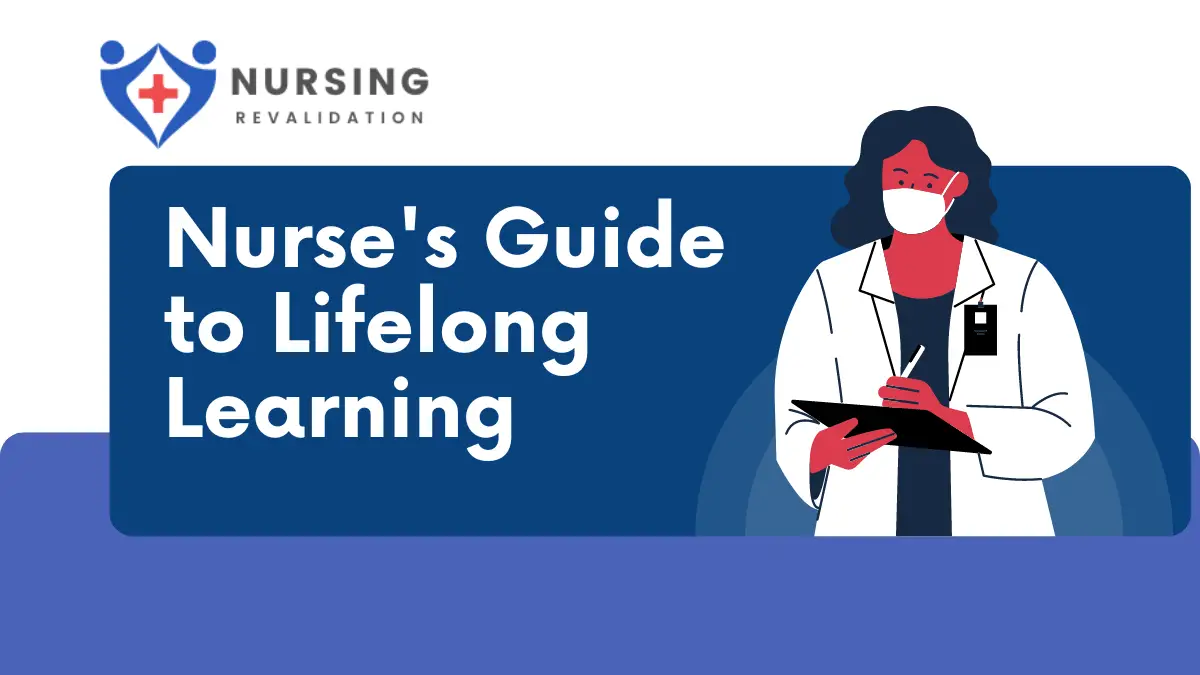As a nurse, the pursuit of knowledge doesn’t end with graduation—it’s a lifelong journey. Lifelong learning is not only essential for personal and professional development but also for providing the best possible care to patients. In this comprehensive guide, we’ll explore effective strategies for nurses to engage in lifelong learning, ensuring they stay up-to-date with the latest advancements in healthcare.
Why Lifelong Learning Matters for Nurses:
Lifelong learning is integral to maintaining competency and adapting to the ever-evolving landscape of healthcare. With medical breakthroughs, technological advancements, and changing patient needs, nurses must continuously expand their knowledge and skills to deliver high-quality care.
Table: Comparison of Lifelong Learning Strategies for Nurses
| Strategy | Description |
|---|---|
| Pursue Advanced Education | In-depth academic programs providing specialized knowledge and skills. |
| Attend CE Programs | Workshops, conferences, and seminars offering updates on nursing practices and research. |
| Join Professional Orgs | Membership in organizations providing resources, networking, and educational opportunities. |
| Utilize Online Resources | Accessing educational materials, webinars, and courses via online platforms. |
| Participate in Improvement | Engaging in quality improvement projects, case studies, and peer reviews for clinical practice enhancement. |
| Mentorship | Establishing mentor-mentee relationships for guidance, support, and professional development. |
| Simulation and Skills Labs | Practical hands-on training in simulated environments to enhance clinical skills and confidence. |
Benefits of Lifelong Learning for Nurses:
- Improved Patient Outcomes: Continuously updating skills and knowledge enables nurses to provide better patient care, leading to improved outcomes and patient satisfaction.
- Career Advancement: Lifelong learning enhances career opportunities, with opportunities for specialization, leadership roles, and higher salaries.
- Personal Fulfillment: Engaging in learning activities fosters personal growth, satisfaction, and a sense of purpose in one’s nursing career.
Strategies for Lifelong Learning:
1. Pursue Advanced Education: Pursuing advanced degrees such as a Master of Science in Nursing (MSN) or Doctor of Nursing Practice (DNP) allows nurses to gain specialized knowledge and skills in areas of interest.
2. Attend Continuing Education (CE) Programs: CE programs, workshops, and conferences provide opportunities to stay updated on the latest research, trends, and best practices in nursing.
3. Join Professional Organizations: Membership in professional nursing organizations provides access to resources, networking opportunities, and educational events tailored to specific areas of practice.
4. Utilize Online Resources: Online platforms, such as nursing journals, webinars, and educational websites, offer convenient and accessible learning opportunities for nurses with busy schedules.
5. Participate in Clinical Practice Improvement: Engage in quality improvement projects, case studies, and peer reviews to enhance clinical skills and promote evidence-based practice.
6. Mentorship and Preceptorship: Both serving as a mentor and seeking mentorship from experienced nurses fosters professional growth, knowledge exchange, and skill development.
7. Incorporate Simulation and Skills Labs: Participating in simulation exercises and skills labs allows nurses to practice clinical scenarios in a safe environment, improving confidence and competency.
Conclusion:
Lifelong learning is not just a professional obligation but a pathway to excellence in nursing practice. By embracing continuous learning, nurses can enhance their skills, advance their careers, and ultimately improve patient outcomes. Incorporating diverse learning strategies ensures nurses remain adaptable, competent, and compassionate caregivers throughout their careers.

